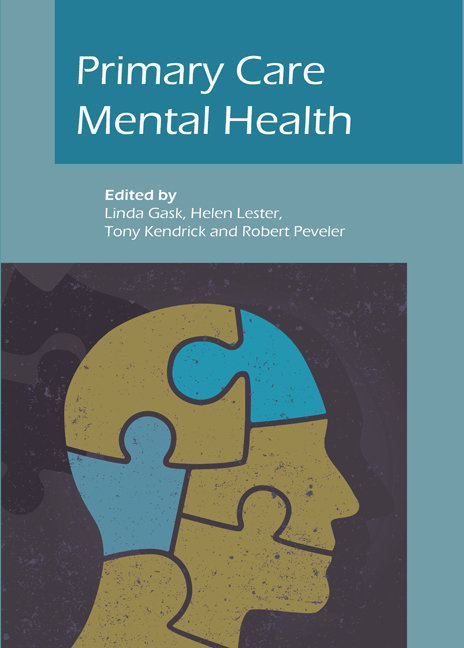Book contents
- Frontmatter
- Contents
- List of figures, tables and boxes
- List of contributors
- Preface
- Part I Conceptual basis and overarching themes
- Part II Clinical issues
- Part III Policy and practice
- Part IV Reflective practice
- 29 Teaching and learning about mental health
- 30 Undertaking mental health research in primary care
- 31 Individual treatment decisions: guidelines and clinical judgement
- 32 Self and others: the mental healthcare of the practitioner
- Epilogue
32 - Self and others: the mental healthcare of the practitioner
from Part IV - Reflective practice
- Frontmatter
- Contents
- List of figures, tables and boxes
- List of contributors
- Preface
- Part I Conceptual basis and overarching themes
- Part II Clinical issues
- Part III Policy and practice
- Part IV Reflective practice
- 29 Teaching and learning about mental health
- 30 Undertaking mental health research in primary care
- 31 Individual treatment decisions: guidelines and clinical judgement
- 32 Self and others: the mental healthcare of the practitioner
- Epilogue
Summary
Reflective practice is wider than learning and clinical performance. An awareness of one's own health and the health and behaviours of colleagues is an integral part of independent practice. Doctors are more likely than the average person to suffer from one or more of the three ‘D's – drink, drugs and depression (including suicide).
Doctors with health problems face unique barriers to obtaining help, owing to their reluctance to seek advice through the usual health routes and the difficulty of adopting the patient role. This can lead to late presentation of physical and psychological illness, and self-treatment or attempts to ‘work through’ the problems.
Doctors in training have perhaps more opportunity to observe and reflect on the practice and behaviours of their seniors as well as to consider how they and their peers respond to the stresses of intense work and personal health issues. However, attention to personal healthcare and an awareness of the health needs of one's colleagues should be an issue for lifelong practice.
Mental health problems in doctors
In the UK, mental health problems are as prevalent or more prevalent in the medical workforce as they are in the rest of society (Office for National Statistics, 2005). Indeed, the prevalence of common mental disorders in doctors is probably almost twice that in the general population (Graske, 2003). There is international evidence that doctors are at a higher risk of developing stress-related problems, depression or suicide (Lindeman et al, 1996; Hawton et al, 2001; Schernhammer & Colditz, 2004). Doctors have high standardised mortality ratios for cirrhosis, accident and suicide (Oxley & Brandon, 1997). Suicide rates among female doctors working in the National Health Service (NHS) are twice those of the general female population. Anaesthetists, general practitioners (GPs) and psychiatrists of both genders have significantly higher suicide rates than doctors who work in general medicine (Hawton et al, 2001).
The misuse of alcohol and drugs is a major concern. The largest group of doctors facing action under the health procedures of the General Medical Council in the UK at any one time are those with drug and alcohol problems. There is evidence that doctors who misuse alcohol are often simultaneously using other drugs, most commonly benzodiazepines, and they may switch between substances over time (Center et al, 2003).
- Type
- Chapter
- Information
- Primary Care Mental Health , pp. 461 - 471Publisher: Royal College of PsychiatristsFirst published in: 2017

